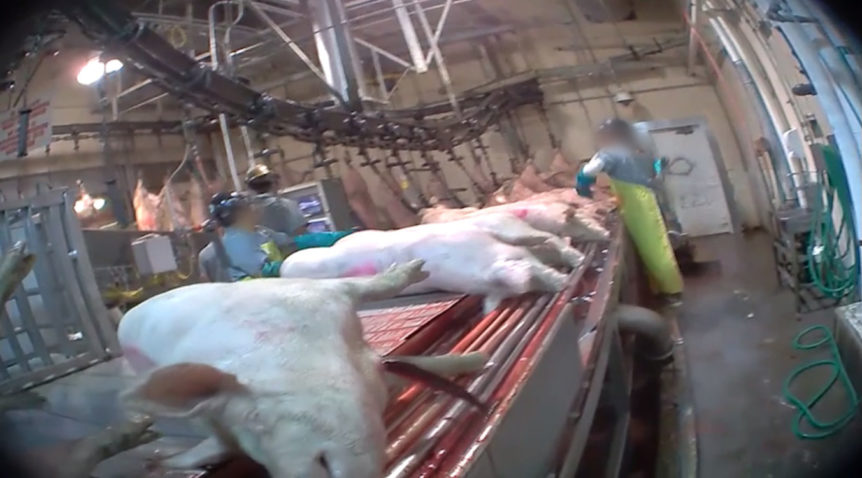On Monday, Compassion Over Killing submitted a legal comment urging USDA’s Food Safety and Inspection Service not to adopt their proposed rule eliminating federal regulations requiring pig carcasses to be cleaned prior to incision. COK joins several consumer advocacy groups, including Food & Water Watch, Center for Food Safety, and Government Accountability Project, in opposing this measure.
Not only does the proposed rule push “efficiency” at the expense of alarming contamination concerns, thereby endangering the health of millions of consumers, it is also the latest attempt by the agency to minimize the much-needed federal inspection at pig slaughterhouses.
COK’s investigation at a high-speed pig slaughterhouse found numerous issues, including animals being beaten, shocked, dragged, and improperly stunned; a supervisor sleeping on the job when he should have been overseeing the stunning process; and pigs covered in feces or pus-filled abscesses being slaughtered and processed for human consumption with a USDA inspection seal of approval.
And yet, earlier this year, the agency proposed to expand this dangerous high-speed pig slaughter program nationwide (misnamed as “Modernization of Swine Slaughter Inspection”), which COK vehemently opposed. In fact, this latest proposed rule even relies on the yet-to-be-finalized expansion. As COK points out in its comment, the “agency cannot rely on nonexistent regulations,” especially when the Modernization of Swine Slaughter Inspection presents significant food safety concerns. COK asked the agency not to adopt this short-sighted rule.
ACT NOW: Sign the petition to urge the USDA to put the brakes on the high-speed, reduced-inspection slaughter program. And click here to donate to support our legal advocacy efforts.

